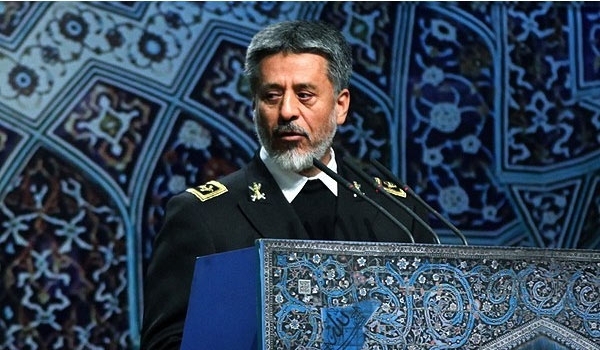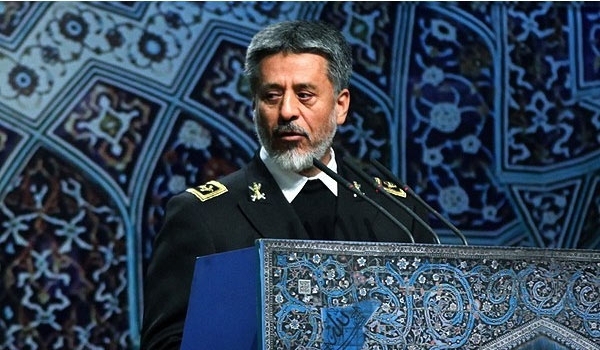 TEHRAN (FNA)- Iranian Navy Commander Rear Admiral Habibollah Sayyari underlined his forces' might and readiness to give a crushing response to any kind of aggression by the country's enemies.
TEHRAN (FNA)- Iranian Navy Commander Rear Admiral Habibollah Sayyari underlined his forces' might and readiness to give a crushing response to any kind of aggression by the country's enemies."The Iranian Navy is ready to give crushing response to any type of threat," Rear Admiral Sayyari said on Friday.
He reiterated that the Iranian Navy guarantees Iran's interests in the national and international water, and said, "The Navy's 32nd Fleet is now conducting anti-piracy patrols in the high seas."
Rear Admiral Sayyari noted that the Iranian Navy has a plan to expand its operational zone in the Northern Indian Ocean beyond the 10-degree latitude.
Earlier this month, the Islamic Revolution Guards Corps (IRGC) Navy Commander Rear Admiral Ali Fadavi underlined that the IRGC Navy has developed its tactics and strategies to become fully prepared to defend Iran against enemies' threats.
Admiral Fadavi highlighted the capabilities of the IRGC naval forces in maritime battles, adding that the Islamic Republic of Iran pursues the withdrawal of US forces from the Persian Gulf.
The IRGC is responsible for the security of the Persian Gulf. In 2008, Major General Yahya Rahim Safavi, former commander of the IRGC and the current military advisor to the Supreme Leader of the Islamic Revolution, declared that the responsibility for defending the Persian Gulf had been handed over to the IRGC.
He warned that the IRGC would seal the strategic Strait of Hormuz in case the US launches any attack on Iran's nuclear installations.
Iran's naval power has even been acknowledged by foes. In a Sep. 11, 2008 report, the Washington Institute for the Near East Policy said that in the two decades since the Iraqi imposed war on Iran, the IRGC has excelled in naval capabilities and is able to wage unique asymmetric warfare against larger naval forces.
According to the report, the IRGC Navy has been transformed into a highly motivated, well-equipped, and well-financed force and is effectively in control of the world's oil lifeline, the Strait of Hormuz.
The study says that if Washington takes military action against the Iran, the scale of the country's response would likely be proportional to the scale of the damage inflicted on the Iranian assets.
By Fars News Agency
The Iran Project is not responsible for the content of quoted articles.











